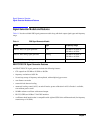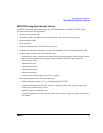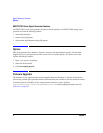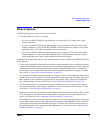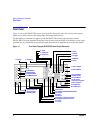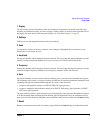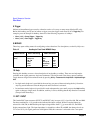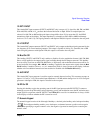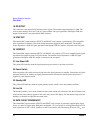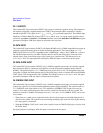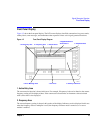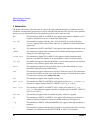
Chapter 1 7
Signal Generator Overview
Front Panel
1. Display
The LCD screen provides information on the current function. Information can include status indicators,
frequency and amplitude settings, and error messages. Softkeys labels are located on the right-hand side of
the display. For more detail on the front panel display, see “Front Panel Display” on page 13.
2. Softkeys
Softkeys activate the displayed function to the left of each key.
3. Knob
Use the knob to increase or decrease a numeric value, changes a highlighted digit or character, or step
through lists or select items in a row.
4. Amplitude
Pressing this hardkey makes amplitude the active function. You can change the output amplitude or use the
menus to configure amplitude attributes such as power search, user flatness, and leveling mode.
5. Frequency
Pressing this hardkey makes frequency the active function. You can change the output frequency or use the
menus to configure frequency attributes such as frequency multiplier, offset, and reference.
6. Save
Pressing this hardkey accesses a menu of choices enabling you to save data in the instrument state register.
The instrument state register is a section of memory divided into 10 sequences (numbered 0 through 9) each
containing 100 registers (numbered 00 through 99). It is used to store and recall:
• frequency and amplitude settings on an E8247C PSG CW signal generator
• frequency, amplitude, and modulation settings on an E8257C PSG analog signal generator or E8267C
PSG vector signal generator
The Save hardkey provides a quick alternative to reconfiguring the signal generator through the front panel
or SCPI commands when switching between different signal configurations. Once an instrument state has
been saved, all of the frequency, amplitude, and modulation settings can be recalled with the
Recall hardkey.
7. Recall
Restores an instrument state saved in a memory register. Refer to the Save hardkey for further information.






